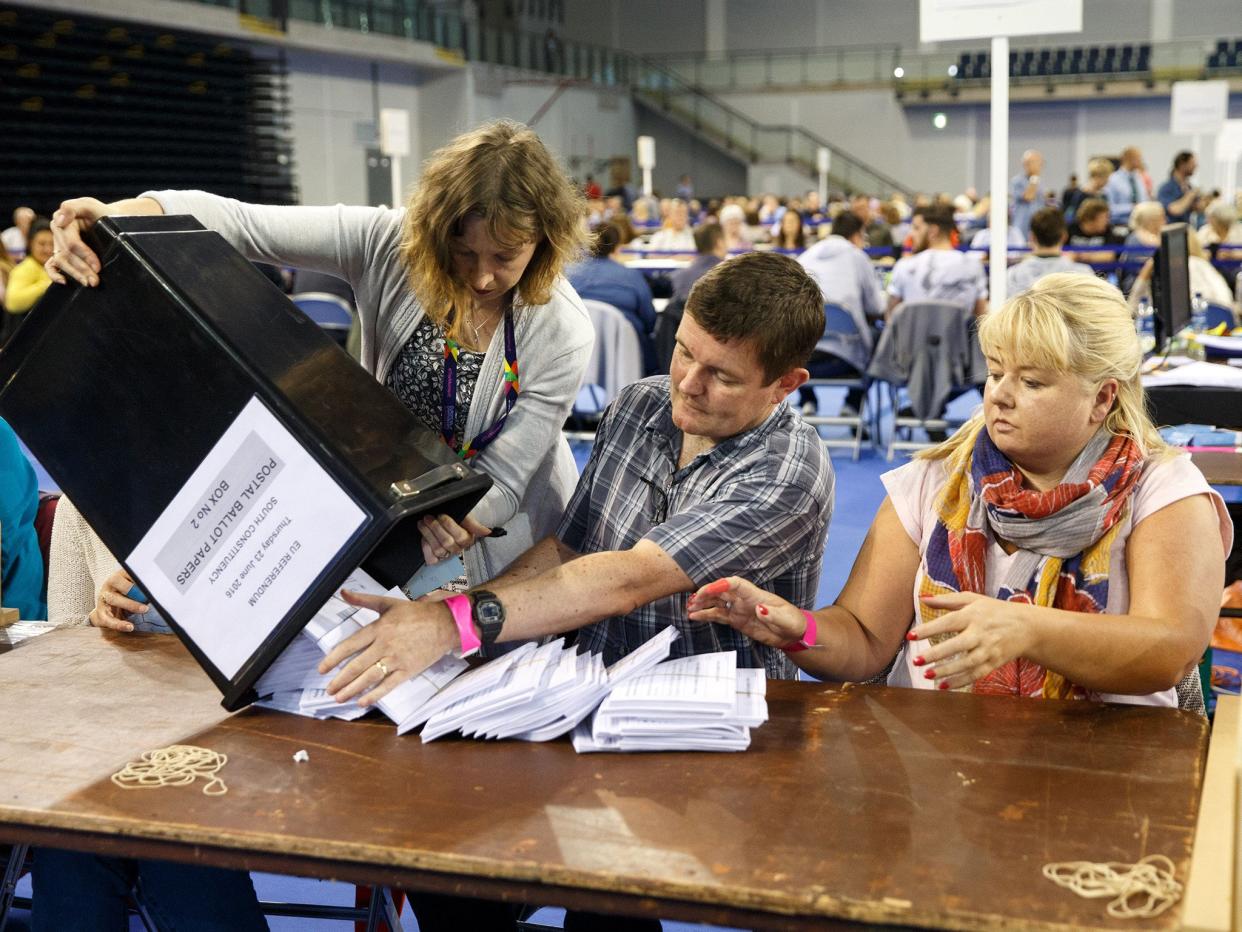UK’s ‘warped’ first-past-the-post system gave ‘wrong winners’ in 17 local authority elections, study finds

England has large areas of “democracy deserts” and had the “wrong winners” in 17 local authorities, according to a new study of 2019 election results.
With speculation mounting in Westminster at the prospect of an early general election, the Electoral Reform Society (ERS) reiterated its call for the “warped” first-past-the-post system used in national elections to be scrapped.
The Denied Democracy report, auditing votes held in 2019, including the local elections and European elections, claims voters are eager to “shop around” at the ballot box but are prevented by the current system.
It adds that during the local elections in May, there were 17 authorities where the party scoring the most votes did not get the most councillors up for election.
The reports authors said this a “localised example of something that has happened on a national scale” in UK general elections under first-past-the-post (FPTP).
They wrote: “In 1951, Labour won most votes across the UK (48.8%) but the Conservatives won the majority of seats. In February 1974, the Conservatives won most votes (37.8%) but Labour won the most seats.”
The ERS added there were over a hundred of “uncontested and under-contested” seats where the number of candidates standing for election in a ward matched the number of councillors to be elected.
“These examples of voters being denied a say in deciding their local representatives, or facing a limited choice of options, are linked to the voting system,” the study adds.
“Under FPTP the barriers to success can be very high. There are many areas of England where representatives of one party or another may feel that it is almost impossible for them to gain representation under the FPTP system.
“It is therefore understandable, if disappointing, that parties decide not to stand candidates in all areas, instead focusing limited resources on the places where they have the best chances of being able to jump the FPTP hurdle and achieve representation on local councils.”
Director of research and policy at the organisation, Dr Jess Garland, said: “If two party politics isn’t dead, it has certainly taken a big hit over the first half of 2019.
“The English local elections and European parliament election, both held in May, saw big gains for those other than the ‘traditional’ two parties – Conservative and Labour. But millions of supporters of all parties and none saw their voices ignored by a warped first-past-the-post (FPTP) system.”
She continued: “Voters appear keen to shop around at the ballot box. However, breaking out of the constraints of winner-takes-all – a system that is infamous for distorting results – can be difficult.
“We’ve shown how England is full of ‘democracy deserts’. But there is an alternative to this unfair set-up. It’s time to switch to a proportional voting system where seats match votes, like in Scotland and Northern Ireland.”
Read more
There’s a better way to make everyone’s voice heard on voting day
Labour eyes shake-up of voting system

 Yahoo News
Yahoo News 
